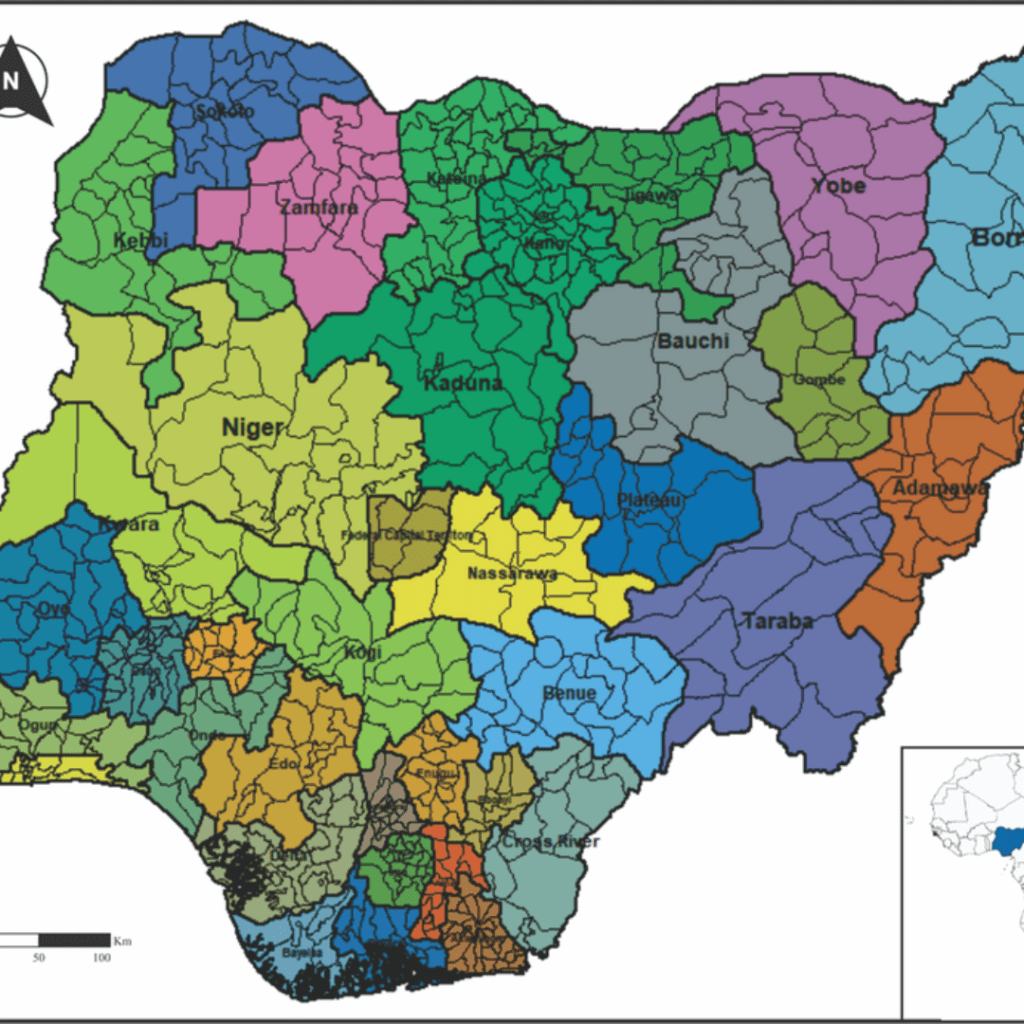Nigeria
Local Government Autonomy Is Non-Negotiable, Says Doguwa

The Chairman of the Downstream Petroleum Committee in the House of Representatives, Alhaji Ado Alhassan Doguwa, emphasized the critical importance of local government autonomy in the country.
Speaking to journalists in Kano, Doguwa highlighted that the current challenges of insecurity, poverty, and underdevelopment are directly linked to the ineffective functioning of local government areas.
He stressed the need for concerted efforts to ensure the autonomy of local governments, pointing out that this would significantly improve the overall well-being of Nigerians.
Doguwa also expressed his commitment to working towards this goal, suggesting that the Speaker should lead the Constitutional Review Committee to facilitate the necessary legislative changes.
He firmly believes that achieving local government autonomy will enhance security and stability, allowing citizens to live without fear and move freely across the nation.
n a firm declaration, Alhassan Ado Doguwa, the Majority Leader of the House of Representatives, has asserted that local government autonomy in Nigeria is non-negotiable. His stance highlights a critical issue in Nigerian politics, emphasizing the need for more independent and empowered local governments to enhance governance and development.

774 Local Government Areas In Nigeria
Background on Local Government Autonomy in Nigeria
Historical Context
The struggle for local government autonomy in Nigeria has been long-standing. Since the establishment of the local government system, there have been continuous efforts to grant these entities more independence from state control. However, local governments have often found themselves at the mercy of state governments, which control their finances and administrative functions.
Current State of Local Government Autonomy
Despite constitutional provisions for local government autonomy, the reality on the ground is different. Many local governments remain heavily dependent on state governments for funding and lack the administrative capacity to function independently. This has led to inefficiencies and hindered local development.
Doguwa’s Statement
Key Points from His Speech
In his recent speech, Doguwa stressed that local government autonomy is essential for improving governance at the grassroots level. He argued that empowering local governments would lead to better service delivery, enhanced accountability, and more responsive governance.
Rationale Behind His Stance
Doguwa’s insistence on local government autonomy stems from a belief that decentralized governance allows for more tailored and effective solutions to local problems. He highlighted that local governments, being closer to the people, are better positioned to understand and address the unique needs of their communities.
Benefits of Local Government Autonomy
Improved Governance and Accountability
Autonomous local governments can operate more efficiently and transparently, leading to better governance. Local leaders, directly accountable to their constituents, are more likely to prioritize the needs and preferences of the local population.
Enhanced Local Development and Services
With greater autonomy, local governments can develop and implement policies that directly benefit their communities. This includes better management of local resources, improved infrastructure, and enhanced public services such as healthcare and education.

Alhaji Ado Alhassan Doguwa
Challenges to Achieving Autonomy
Political Resistance
One of the significant challenges to local government autonomy is political resistance from state governments. Many state leaders are reluctant to cede control and resources to local governments, fearing a loss of power and influence.
Financial and Administrative Hurdles
Local governments often lack the financial resources and administrative capacity to operate independently. Addressing these challenges requires substantial investment in capacity building and reforms to ensure financial autonomy and sustainability.
Comparative Analysis
Local Government Autonomy in Other Countries
Examining local government autonomy in other countries provides valuable insights. In countries like the United States and India, local governments enjoy significant independence, allowing them to manage local affairs effectively and contribute to overall national development.
Lessons Nigeria Can Learn
Nigeria can learn from these examples by implementing similar frameworks that provide local governments with the necessary authority and resources. Decentralization and capacity building are crucial to achieving effective local governance.
Public and Political Reactions
Support and Opposition from Various Stakeholders
Doguwa’s call for local government autonomy has garnered both support and opposition. Many civil society groups and local leaders back the move, seeing it as a path to better governance. However, some state government officials and politicians oppose it, fearing it might dilute their power.
Media Coverage and Public Opinion
The media has played a critical role in shaping public opinion on this issue. There has been widespread coverage and debate, with many Nigerians expressing support for more autonomous and accountable local governments.

Doguwa
Implications for National Governance
Potential Impacts on Federal-State Relations
Granting autonomy to local governments could reshape federal-state relations in Nigeria. It may lead to a more balanced distribution of power and resources, fostering a more cooperative and effective governance framework.
Long-Term Benefits for Democracy in Nigeria
In the long run, local government autonomy can strengthen Nigeria’s democracy by promoting grassroots participation and ensuring that government actions reflect the will and needs of the people.
Strategies for Implementing Autonomy
Legislative Measures
Implementing local government autonomy will require robust legislative measures. This includes passing laws that guarantee financial independence and administrative authority for local governments.
READ ALSO: FG Takes 36 Governors to Supreme Court Over LGAs Autonomy
Capacity Building for Local Governments
Strengthening local governments involves investing in capacity building. Training local officials, improving administrative infrastructure, and ensuring adequate funding are essential steps toward effective autonomy.
Case Studies of Successful Local Governments
Examples from Within Nigeria
Some local governments in Nigeria have shown remarkable success in governance and development, serving as models for others. These examples highlight the potential benefits of autonomy when local leaders are empowered and accountable.
International Examples of Effective Local Governance
Countries with successful local government systems provide valuable lessons. Their experiences underscore the importance of autonomy, accountability, and capacity building in achieving effective local governance.

Nigeria’s Largest Local Government Areas by Landmass |
Economic Impact
Potential for Economic Growth at the Local Level
Autonomous local governments can drive economic growth by fostering entrepreneurship, improving infrastructure, and managing local resources more efficiently. This localized economic development can significantly boost the national economy.
Boost to National Economy through Decentralized Development
Decentralized development ensures that economic growth is more evenly distributed across the country, reducing regional disparities and promoting overall national prosperity.
Social and Cultural Benefits
Enhanced Community Engagement
Local government autonomy encourages greater community engagement. Citizens are more likely to participate in governance when they feel their voices are heard and their needs are addressed.
Preservation and Promotion of Local Cultures
Autonomous local governments can better preserve and promote local cultures, traditions, and languages, contributing to Nigeria’s rich cultural diversity.
Role of Technology in Local Governance
Digital Tools for Transparency and Efficiency
The adoption of digital tools can enhance transparency and efficiency in local governance. E-governance initiatives can streamline administrative processes and improve service delivery.
E-Governance Initiatives
E-governance initiatives can transform local governance by making it more accessible, accountable, and efficient. These initiatives include online portals for services, digital record-keeping, and transparent budgeting systems.
READ ALSO: FG Proposes Scrapping State Electoral Bodies to Ensure LG Autonomy
Future Prospects
The Road Ahead for Local Government Autonomy in Nigeria
Achieving local government autonomy in Nigeria requires sustained efforts and commitment from all stakeholders. Legislative reforms, capacity building, and public support are crucial for realizing this goal.
Key Milestones and Goals
Key milestones include passing necessary legislation, implementing capacity-building programs, and ensuring financial independence for local governments. Achieving these goals will pave the way for more effective and accountable local governance.
Local government autonomy is essential for improving governance, fostering development, and strengthening democracy in Nigeria. Alhassan Ado Doguwa’s call for non-negotiable autonomy highlights the critical need for empowering local governments. The road ahead involves addressing political, financial, and administrative challenges, but the long-term benefits for Nigeria’s governance and development are undeniable.
FAQs
What is local government autonomy?
Local government autonomy refers to the independence of local government units to manage their affairs without undue interference from state or federal authorities. This includes financial independence, administrative authority, and the ability to make decisions that best serve their communities.
Why is local government autonomy important for Nigeria?
Local government autonomy is crucial for improving governance at the grassroots level, enhancing accountability, and ensuring that local needs are effectively addressed. It promotes more responsive and efficient governance and fosters local development.
What are the main challenges to local government autonomy?
The main challenges include political resistance from state governments, financial dependence on higher levels of government, and a lack of administrative capacity. Overcoming these challenges requires comprehensive reforms and capacity-building initiatives.
How can local government autonomy improve governance?
Autonomy allows local governments to operate more efficiently and transparently. It ensures that local leaders are directly accountable to their constituents, leading to better service delivery and more effective governance.
What steps are needed to achieve local government autonomy in Nigeria?
Achieving autonomy requires passing enabling legislation, building the capacity of local governments, ensuring financial independence, and fostering public support. These steps will help create a framework for effective and autonomous local governance.
